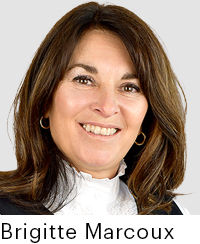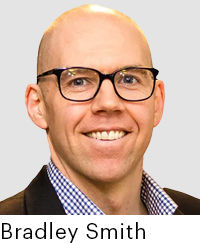
Raising awareness about the mental health support programs offered by employers is a key priority for Brigitte Marcoux, National Director of Practice Excellence and Support Solutions, at Beneva.
In an interview with Insurance Portal, Marcoux emphasized that the battle is far from over. She pointed out that many employees remain unaware of the support solutions available, with Employee Assistance Programs (EAPs) being a prime example.
According to the 2022 report Portrait of the Mental Health of SME Workers in Canada, 51 per cent of the 2,500 respondents said they do not have access to an EAP. Twenty-eight per cent reported having access, while 21 per cent were unsure.
Brigitte Marcoux collaborated on this survey, which is updated annually by the Relief Research Chair in Mental Health, Self-Management, and Work at Université Laval, sponsored by Beneva. Marcoux notes that the underutilization of EAPs is directly linked to a lack of employee awareness.
"There are still concerns about the confidentiality of assistance programs." — Brigitte Marcoux
"We found that EAP services are underutilized in SMEs for various reasons, the main one being that people don't know they have access to one. Even those who know they have access often don’t understand what services are available," she explained.
Citing the report, Marcoux added that while most people are aware that EAP consultations remain confidential, one in ten still believes otherwise. "There are ongoing concerns about the confidentiality of an assistance program because it’s paid for by the employer," she said.
Beyond the Data: Raising awareness
In response, Beneva has launched an action plan to increase awareness by training teams that interact with clients offering EAPs.
Marcoux shared that the insurer will continue its training efforts starting Sept. 18, 2024, this time focusing on advisors and plan sponsors. She mentioned that around ten training sessions, available in both French and English, will aim to clarify and highlight the services these programs offer.
"It's great to share research-based data. But we want our concrete actions to resonate within society, within the organizations we insure, and ultimately with our policyholders," Marcoux underlined as she outlined Beneva’s health initiatives.
From physical injury to mental health issues
During the Beneva health conference in Montreal on May 29, 2024, Marcoux shared the stage with Roee Ben-Eli, Director of Strategic Programs, Virtual Care for TELUS Health, and Dr. Christine Grou, President of the Ordre des psychologues du Québec (Quebec’s Order of Psychologists).
The panelists discussed mental health from the perspective of physical injury, an approach Marcoux described as rarely seen. "A significant number of cases start with physical therapy and end up leading to mental health issues," she observed.
The panelists illustrated this with a case study: Marie, an employee diagnosed with a herniated disc early in the year. After nine months of physiotherapy and despite her efforts, the lack of progress necessitates surgery. With a young child at home and a spouse working night shifts, Marie becomes overwhelmed and develops daily anxiety, leading to sleep disturbances.
After experiencing anxiety attacks and insomnia, she begins taking anxiolytics. The pain persists, affecting her work. Eventually, her doctor prescribes a leave of absence. The panelists highlighted the role that managers and union representatives can play before reaching the point of a work stoppage.
"As a manager, you need to explain to the employee the available accommodation measures to ease their mental load. Instead of keeping Marie on a five-day workweek, the manager could have offered part-time work, adjusted her schedule for treatments, or rearranged her workstation," Marcoux said in an interview about the panel discussions.
Insomnia: a mental health injury
Marie’s case also demonstrated that lack of sleep can severely impact mental health.
Haleo, a provider of virtual cognitive-behavioral therapy for treating insomnia, serves employers across various sectors, including financial services. Of the 78,060 workers in this sector who have access to their therapy, 15,762 reported sleep problems and voluntarily requested clinical screening, with 90 per cent being admitted to treatment.
"The financial services industry has the largest sample size." — Bradley Smith
Haleo's treatment has eliminated clinically significant insomnia symptoms in 94 per cent of employees suffering from moderate to severe chronic insomnia, according to their report Poor Sleep is Prevalent in Financial Services. The data for the report was collected in March 2024.
Significant sample size

In an interview with Insurance Portal, Haleo's CEO and Founder Bradley Smith, explained his choice of the financial sector for the report: "The financial services industry has the largest sample size."
Smith also aimed to demonstrate that it is possible to treat a large number of people and achieve significant clinical results.
"Out of over 78,000 employees, about 20 per cent completed a screening," he noted. Smith highlighted that these individuals sought screening on their own initiative. "It’s rare to see so many people engage in therapy for treating a chronic condition," he added.
No quick fix
Virtual cognitive-behavioral therapy for insomnia "is not a quick fix," underlined Smith. "It requires commitment. You need to follow a schedule set by a professional. You’ll be asked to go to bed and wake up at specific times daily for several weeks," he explained.
"Taking a sleeping pill doesn’t help people solve their insomnia problem." — Bradley Smith
"Taking a sleeping pill doesn’t help people solve their insomnia problem," Smith continued. "It helps them get through tough phases. They live with this insomnia, which affects their mental and physical health, as well as their productivity at work. For companies, insomnia increases the risk of disability, the cost of replacing workers, and the cost of medication. It also raises the risk of workplace accidents."
Founded in 2015, Haleo is not the only provider of insomnia treatment. For example, TELUS Health offers virtual cognitive-behavioral therapy for insomnia as part of Beneva’s group benefits plans, noted Brigitte Marcoux.
Smith mentioned that Haleo is also active with other group insurers and directly with companies. In 2017, Haleo secured its first corporate client: Desjardins Insurance began offering its solution to employees. Haleo’s services became available in the United States in 2021. The company formed a partnership with Green Shield Canada in 2022.




